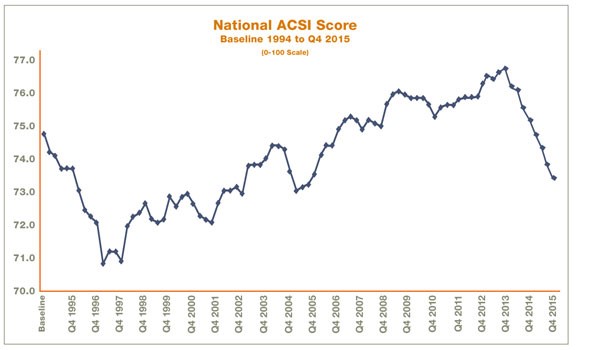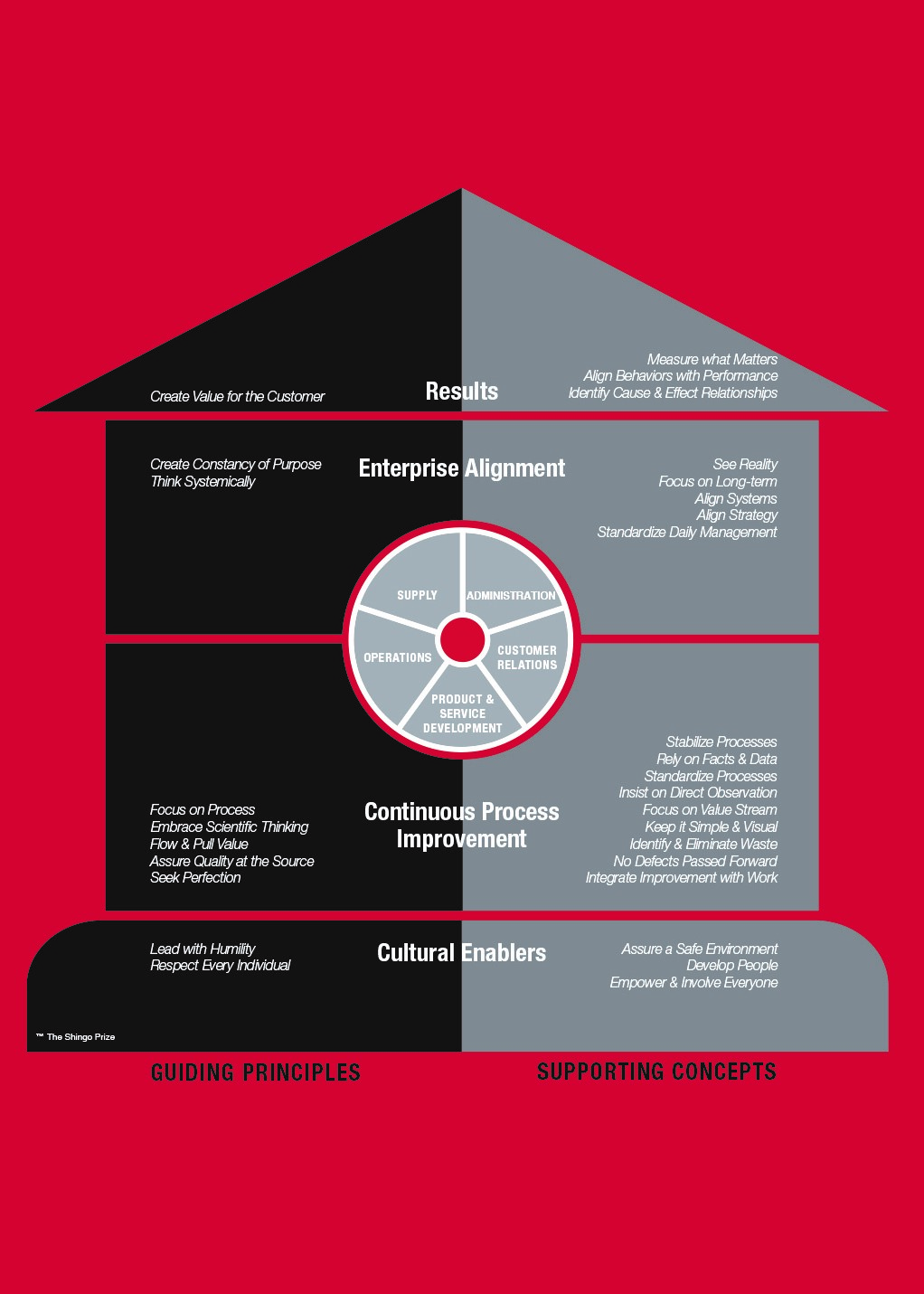Each quarter, the American Customer Satisfaction Index issues an update of overall U.S. customer satisfaction. The national ACSI score for the period 1994 through 2015, as depicted below, reflects an aggregate of customer satisfaction with companies that comprise a large cross-section of the economy.*

National ACSI Score
It’s worthwhile noting that the ACSI score for Q$ in 2015 is well below the baseline 1994 level. This is just one indication that customers’ expectations are outpacing the ability of organizations to deliver.
Many organizations invest heavily in customer satisfaction surveys. The practical benefit of the data that comes out of such surveys is seriously questionable. Firms would be well advised to stop this excessive spending on customer surveys that drives not only survey fatigue among consumers but it also produces data that is rarely used effectively. Instead, companies would be well served by paying more attention to what customers really want. There is ample evidence on what customers want and expect. For example, one report by Oracle identified the list of what organizations need to do as summarized below:**
- Pick up the phone. 58 percent of consumers noted that their expectations were not met because a company was unavailable by phone and e-mail.
- Shake a leg. 56 percent said companies are slow to resolve issues.
- Get a clue. 57 percent said companies are clueless; it sometimes feels like the consumer knows more about the company than the customer service agent.
- Be friendly. 51 percent said companies are impersonal; sometimes they can’t even get the customer’s name right.
- Know your customer’s interaction history. 34 percent said companies are forgetful; they don’t even remember a customer who has recently talked to a customer service agent.
- Get social. 16 percent said companies are antisocial; they are nowhere to be found on social networking sites.
Even though these findings are thought provoking, adopting these tactics are rapidly becoming just “table stakes” as the ground rules change and customers’ expectations continue to accelerate.
Contrary to popular belief, the key to delivering superior customer experience will not be found simply inside the customer service organization. Instead, companies that can find ways for departments to collaborate in novel and exciting ways will reap benefits in terms of customer loyalty and repeat business. This requires an understanding of the way work flows across departments to create value for customers – commonly known as cross-functional business processes.
Skeptical? Just consider the following questions:
- Has your IT department ensured that your customer service reps have ready access to your customer’s interaction history?
- Does your Marketing department make it a top priority to keep customer service informed of discounts and promotions?
- Do multiple departments (Sales, Marketing, R&D, Procurement, and Finance) collaborate so that the organization can keep its promised date of product introduction to customers?
- Does the senior leadership team emphasize the importance of on-time, complete, error free delivery of orders to customers to promote Operations and Procurement and Finance to collaborate?
Operational excellence principles are at the core of success in improving customer experience. Just consider the schematic below from the Shingo Prize on Operational Excellence. Creating value for customers is at the heart of Operational Excellence and is accomplished by the following success factors.
Success factor #1: Measure what matters to customers
This enables leaders to ask questions around operational performance and creating value for customers. By emphasizing metrics such as perfect order delivery (on-time, complete, error-free), perfect response to inquiries and complaints (first-time-right, complete, error-free), and variance to promise date for new product or service introduction, leaders can raise thought-provoking questions that directly strike to operational performance and require cross-departmental collaboration.

Success factor #2: Create Focus
Establishing a close and collaborative relationship with the principal C level officers is essential to creating increased focus on process orientation and fundamental to success. Others may advocate major change, but, invariably, the CEO leads the communication of the case for change for major initiatives such as Operational Excellence and the CEO decides which members of the leadership team need to engage.
Success factor #3: Promote Learning
This is the final critical success factor. By measuring what matters to customers and creating focus, the leadership team can set the stage to engage people in lunch and learn sessions around the performance of critical processes and be front and center in reinforcing the need for cross functional collaboration.
Creating value for customers is mostly about collaboration – not control. If your organization wishes to take advantage of operational excellence principles to improve customer experience, then it’s important to emphasize collaboration, enterprise wide process orientation, and respect for people.
* http://www.theacsi.org/national-economic-indicator/us-overall-customer-satisfaction
** Oracle, Customer Experience Impact (CEI) Report, 2011

















